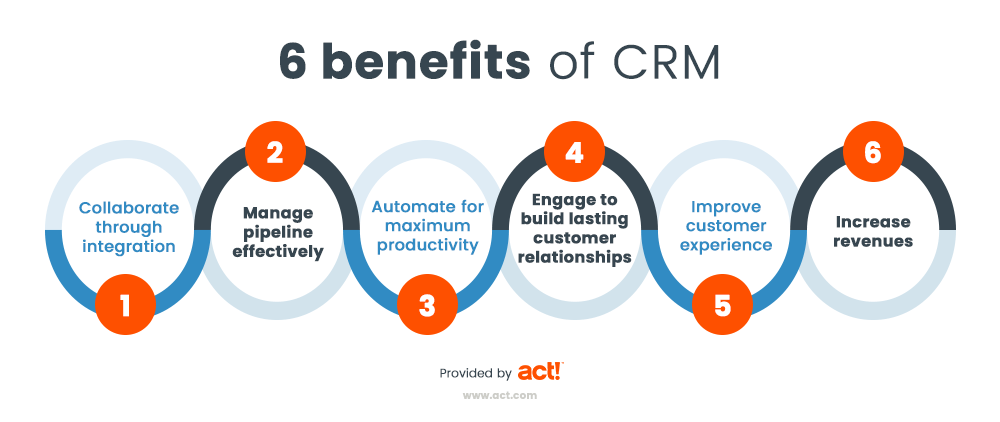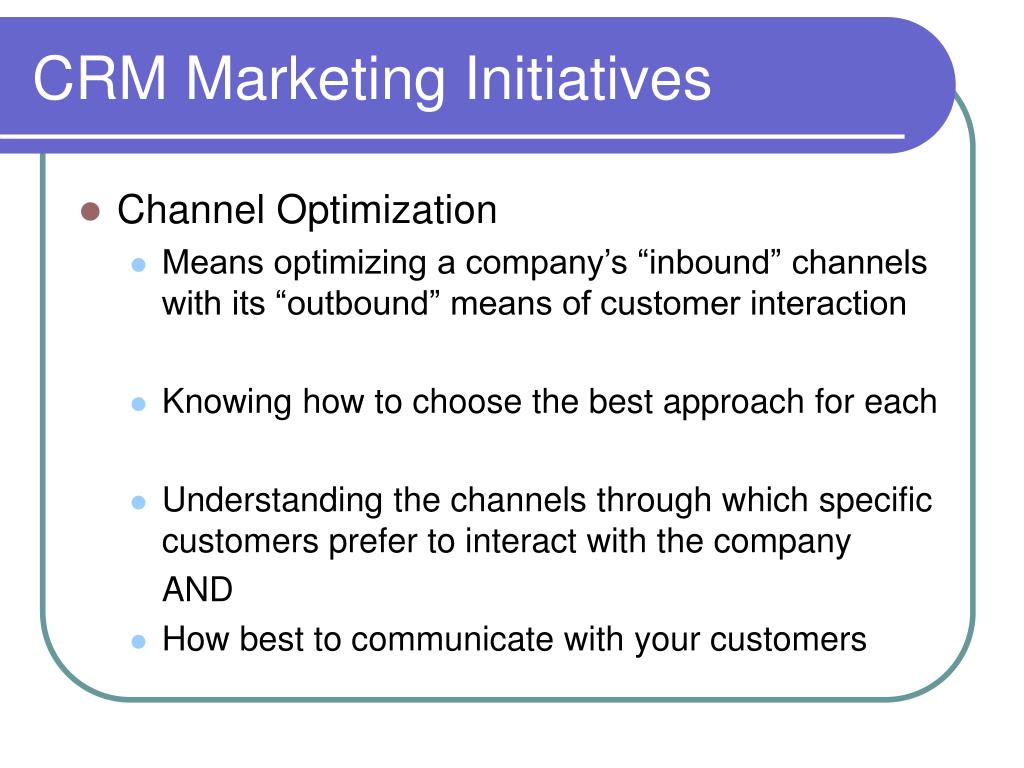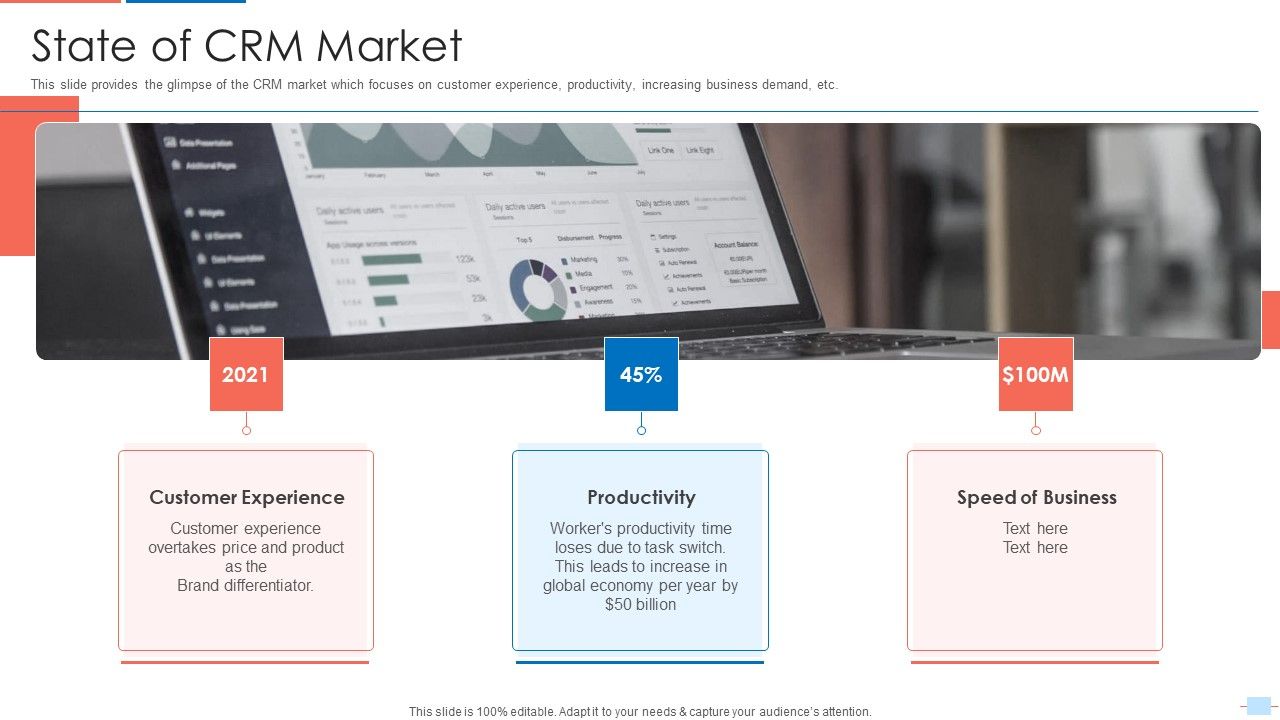Unlocking Growth: A Comprehensive Guide to CRM Marketing Software
In today’s hyper-competitive business landscape, standing out from the crowd requires more than just a great product or service. It demands a deep understanding of your customers, personalized interactions, and a seamless customer experience. This is where CRM marketing software comes into play, acting as the central nervous system of your marketing efforts. This comprehensive guide will delve into the world of CRM marketing software, exploring its functionalities, benefits, implementation strategies, and the best platforms available.
What is CRM Marketing Software?
CRM marketing software, or Customer Relationship Management marketing software, is a technology solution designed to manage and analyze customer interactions and data throughout the customer lifecycle. It centralizes customer information, allowing businesses to track leads, manage contacts, automate marketing campaigns, and gain valuable insights into customer behavior. Essentially, it’s a digital hub where all customer-related information resides, enabling businesses to build stronger relationships and drive revenue growth.
Key Components of CRM Marketing Software
- Contact Management: Centralized storage of customer data, including contact information, communication history, and purchase history.
- Lead Management: Tracking and nurturing leads through the sales funnel, from initial contact to conversion.
- Marketing Automation: Automating repetitive marketing tasks, such as email campaigns, social media posting, and lead nurturing workflows.
- Sales Force Automation: Streamlining the sales process, from lead generation to deal closing, with tools for managing sales pipelines and forecasting.
- Reporting and Analytics: Providing insights into key performance indicators (KPIs), such as conversion rates, customer lifetime value, and campaign performance.
- Integration: Connecting with other business systems, such as email marketing platforms, e-commerce platforms, and social media channels, to create a unified view of the customer.
Benefits of Implementing CRM Marketing Software
The implementation of CRM marketing software offers a multitude of benefits for businesses of all sizes and across various industries. It’s not just about managing customer data; it’s about transforming the way you interact with your customers and optimize your marketing efforts. Here are some key advantages:
Enhanced Customer Relationships
CRM software allows you to build stronger customer relationships by providing a 360-degree view of each customer. This comprehensive understanding enables you to personalize interactions, anticipate customer needs, and deliver exceptional customer service, ultimately fostering loyalty and advocacy.
Improved Marketing ROI
By automating marketing tasks and providing detailed analytics, CRM software helps you optimize your marketing campaigns and improve your return on investment (ROI). You can track the performance of your campaigns, identify what’s working and what’s not, and make data-driven decisions to maximize your marketing spend. Furthermore, it enables targeted campaigns that resonate with specific customer segments, leading to higher conversion rates and increased revenue.
Increased Sales Efficiency
CRM software streamlines the sales process by providing sales teams with the tools and information they need to close deals faster and more efficiently. It automates tasks such as lead assignment, follow-up reminders, and sales reporting, freeing up sales representatives to focus on building relationships and closing deals. This ultimately results in a shorter sales cycle and increased sales revenue.
Better Data Organization and Management
CRM software centralizes customer data, eliminating the need for multiple spreadsheets and disparate systems. This makes it easier to access and manage customer information, ensuring data accuracy and consistency across the organization. Furthermore, it provides a secure and reliable platform for storing sensitive customer data, helping you comply with data privacy regulations.
Improved Communication and Collaboration
CRM software facilitates seamless communication and collaboration between different departments within your organization. Sales, marketing, and customer service teams can access the same customer data, ensuring everyone is on the same page and working towards the same goals. This streamlined communication leads to a more unified customer experience and improved overall efficiency.
Key Features to Look for in CRM Marketing Software
Choosing the right CRM marketing software can be a daunting task, as the market is flooded with options. However, by focusing on key features that align with your business needs, you can make an informed decision. Here are some essential features to consider:
Contact Management
This is the core of any CRM system. Ensure the software allows you to store and manage all your customer contacts, including contact details, communication history, and any relevant notes. Look for features like contact segmentation, tagging, and the ability to import and export data.
Lead Management
The software should enable you to track and nurture leads effectively. Key features include lead scoring, lead assignment, and the ability to track leads through the sales pipeline. This will help you identify the most promising leads and prioritize your efforts.
Marketing Automation
Marketing automation is a game-changer, allowing you to automate repetitive tasks and personalize your marketing campaigns. Look for features like email marketing, social media integration, and the ability to create automated workflows for lead nurturing and customer onboarding.
Sales Force Automation (SFA)
SFA features help streamline the sales process, making it easier for your sales team to close deals. Look for features like sales pipeline management, deal tracking, and sales forecasting. Integration with your existing sales tools is also crucial.
Reporting and Analytics
Robust reporting and analytics capabilities are essential for measuring the success of your marketing efforts. The software should provide insights into key performance indicators (KPIs), such as conversion rates, customer lifetime value, and campaign performance. Customizable dashboards are a plus.
Integration Capabilities
The ability to integrate with other business systems is crucial for creating a unified view of the customer. Ensure the software integrates with your existing email marketing platform, e-commerce platform, social media channels, and other tools you use. Open APIs are a bonus.
Mobile Accessibility
In today’s mobile world, it’s essential to have access to your CRM data on the go. Look for software with a mobile app or a responsive web design that allows you to access your data from anywhere, anytime.
User-Friendly Interface
The software should be easy to use and navigate. A clean and intuitive interface will ensure that your team can quickly adopt the software and start using it effectively.
Scalability
Choose a CRM solution that can scale with your business as you grow. Consider the number of users, the amount of data you’ll be storing, and the features you’ll need in the future.
Top CRM Marketing Software Platforms
The CRM market is competitive, with numerous platforms vying for your attention. Choosing the right one depends on your specific needs and budget. Here are some of the top CRM marketing software platforms:
HubSpot CRM
HubSpot CRM is a popular choice for businesses of all sizes, known for its user-friendly interface and comprehensive features. It offers a free version with basic CRM functionality, making it an excellent option for startups and small businesses. Its marketing automation capabilities are particularly strong, and it integrates seamlessly with other HubSpot tools, creating a cohesive marketing ecosystem. Its ease of use and extensive training resources make it a great platform for businesses new to CRM.
Pros:
- Free version available
- User-friendly interface
- Strong marketing automation features
- Excellent integration with other HubSpot tools
Cons:
- Limited features in the free version
- Can become expensive as you scale
Salesforce Sales Cloud
Salesforce is a leading CRM platform, offering a wide range of features and customization options. It’s a robust solution suitable for large enterprises and businesses with complex sales processes. Salesforce provides extensive customization options, a vast app marketplace, and powerful reporting and analytics capabilities. It’s a comprehensive, albeit complex, system that offers unparalleled flexibility and control.
Pros:
- Highly customizable
- Extensive features
- Powerful reporting and analytics
- Large app marketplace
Cons:
- Complex and can be challenging to learn
- Expensive
- Requires significant implementation time
Zoho CRM
Zoho CRM is a versatile and affordable option, particularly well-suited for small to medium-sized businesses. It offers a wide range of features, including sales force automation, marketing automation, and customer service tools. Zoho CRM is known for its ease of use and affordability, making it an attractive option for businesses on a budget. It also integrates well with other Zoho apps, creating a comprehensive suite of business tools.
Pros:
- Affordable
- User-friendly interface
- Comprehensive features
- Good integration with other Zoho apps
Cons:
- Marketing automation features are not as robust as HubSpot
- Customization options are limited compared to Salesforce
Microsoft Dynamics 365
Microsoft Dynamics 365 is a comprehensive CRM and ERP (Enterprise Resource Planning) platform, offering a wide range of features and integrations with other Microsoft products. It’s a good choice for businesses that are already invested in the Microsoft ecosystem. Dynamics 365 offers robust functionality, including sales, marketing, and customer service modules, and integrates seamlessly with Microsoft Office 365 and other Microsoft products.
Pros:
- Seamless integration with Microsoft products
- Comprehensive features
- Scalable
Cons:
- Can be complex to set up and manage
- Expensive
Pipedrive
Pipedrive is a sales-focused CRM designed for small businesses and startups. It’s known for its intuitive interface and focus on sales pipeline management. Pipedrive is a great choice for businesses that want a simple and effective CRM to manage their sales process. It’s easy to set up and use, and offers a range of features for sales pipeline management, lead tracking, and reporting.
Pros:
- User-friendly interface
- Focus on sales pipeline management
- Easy to set up and use
Cons:
- Limited marketing automation features
- Not as feature-rich as some other platforms
Implementing CRM Marketing Software: A Step-by-Step Guide
Implementing CRM marketing software is a strategic initiative that requires careful planning and execution. A well-defined implementation plan is crucial for ensuring a smooth transition and maximizing the benefits of the software. Here’s a step-by-step guide to help you through the process:
1. Define Your Goals and Objectives
Before you start looking at software, it’s essential to define your goals and objectives. What do you hope to achieve with CRM? Are you looking to improve customer satisfaction, increase sales, or streamline your marketing efforts? Clearly defined goals will guide your software selection and implementation process.
2. Assess Your Needs
Identify your specific needs and requirements. What features are essential for your business? Consider your sales process, marketing strategies, and customer service operations. Create a list of must-have features and nice-to-have features to help you evaluate different software options.
3. Research and Evaluate Software Options
Research different CRM marketing software platforms and compare their features, pricing, and integrations. Read reviews, watch demos, and request free trials to get a feel for each platform. Consider your budget, the size of your business, and your technical expertise when making your decision.
4. Choose the Right Software
Select the CRM software that best fits your needs and budget. Consider factors like user-friendliness, scalability, and integration capabilities. Ensure the software aligns with your business goals and provides the features you need to succeed.
5. Plan Your Implementation
Develop a detailed implementation plan that outlines the steps you’ll take to deploy the software. This should include data migration, user training, and integration with other systems. Assign roles and responsibilities to ensure a smooth implementation process.
6. Migrate Your Data
Migrate your existing customer data into the new CRM system. This can be a time-consuming process, so plan accordingly. Ensure your data is clean and accurate before migrating it to the new system. Consider using data cleansing tools to improve data quality.
7. Train Your Team
Provide comprehensive training to your team on how to use the new CRM software. This will ensure that everyone understands how to use the software effectively and can take full advantage of its features. Offer ongoing training and support to help your team stay up-to-date with the latest features and functionalities.
8. Customize the Software
Customize the software to meet your specific business needs. This may involve configuring workflows, creating custom fields, and integrating with other systems. Take advantage of the software’s customization options to tailor it to your unique requirements.
9. Test and Refine
Test the software thoroughly before launching it to your entire team. Identify any issues and make necessary adjustments. Gather feedback from your team and refine the software based on their input. Continuous improvement is key to maximizing the benefits of your CRM system.
10. Monitor and Optimize
Monitor the performance of your CRM software and track key metrics. Analyze your data to identify areas for improvement and make data-driven decisions. Continuously optimize your CRM system to ensure it’s meeting your business goals and delivering a positive return on investment.
CRM Marketing Software: Best Practices for Success
Implementing CRM marketing software is only the first step. To maximize its effectiveness, you need to follow best practices that ensure its successful adoption and utilization. Here are some key strategies to keep in mind:
Data Quality is Paramount
The quality of your data is critical to the success of your CRM implementation. Ensure your data is accurate, complete, and up-to-date. Regularly cleanse your data to remove duplicates, correct errors, and update outdated information. Bad data can lead to inaccurate reporting, ineffective marketing campaigns, and a poor customer experience.
Focus on User Adoption
User adoption is essential for the success of any CRM system. Provide adequate training and support to your team to ensure they understand how to use the software effectively. Encourage user feedback and address any concerns or issues promptly. Make the software easy to use and integrate it into your team’s daily workflow.
Integrate with Other Systems
Integrate your CRM with other business systems, such as your email marketing platform, e-commerce platform, and social media channels. This will create a unified view of the customer and enable you to track customer interactions across all touchpoints. Integration will also help you automate tasks and streamline your workflow.
Personalize Your Customer Interactions
Use the data in your CRM to personalize your customer interactions. Tailor your marketing messages, offers, and customer service to individual customer needs and preferences. Personalization will help you build stronger customer relationships and increase customer loyalty.
Automate Repetitive Tasks
Take advantage of the CRM’s automation capabilities to automate repetitive tasks, such as email marketing, lead nurturing, and sales follow-up. Automation will free up your team’s time to focus on more strategic activities and improve overall efficiency.
Analyze Your Data Regularly
Regularly analyze your CRM data to gain insights into customer behavior, campaign performance, and sales trends. Use these insights to make data-driven decisions and optimize your marketing and sales efforts. Track key performance indicators (KPIs) and monitor your progress towards your goals.
Continuously Improve Your CRM Strategy
Your CRM strategy should be a living, breathing entity. Regularly review your CRM processes and make necessary adjustments to improve its effectiveness. Stay up-to-date with the latest CRM trends and technologies. Seek feedback from your team and customers to identify areas for improvement.
The Future of CRM Marketing Software
The CRM marketing software landscape is constantly evolving, with new technologies and trends emerging regularly. Here’s what the future holds:
Artificial Intelligence (AI) and Machine Learning (ML)
AI and ML are playing an increasingly important role in CRM, enabling businesses to automate tasks, personalize customer interactions, and gain deeper insights into customer behavior. AI-powered CRM systems can analyze vast amounts of data to predict customer behavior, identify sales opportunities, and automate marketing campaigns. Machine learning algorithms can be used to personalize customer recommendations, optimize pricing, and improve customer service.
Enhanced Personalization
Customers expect personalized experiences, and CRM systems will continue to evolve to meet this demand. CRM software will leverage AI and ML to provide even more personalized recommendations, offers, and customer service interactions. This will involve using data from multiple sources to create a 360-degree view of the customer and tailor every interaction to their individual needs and preferences.
Increased Integration
CRM systems will become even more integrated with other business systems, such as marketing automation platforms, e-commerce platforms, and social media channels. This will create a seamless customer experience and enable businesses to track customer interactions across all touchpoints. Integration will also allow businesses to automate tasks and streamline their workflow.
Mobile-First Approach
Mobile accessibility will continue to be a key focus for CRM software. With the increasing use of mobile devices, CRM systems will need to provide a seamless mobile experience. This will involve developing mobile apps and responsive web designs that allow users to access their CRM data from anywhere, anytime.
Focus on Customer Experience (CX)
CRM systems will increasingly focus on improving the customer experience (CX). This will involve providing tools for managing customer service, collecting customer feedback, and personalizing customer interactions. The goal is to create a positive customer experience that builds loyalty and advocacy.
Conclusion: Embracing the Power of CRM Marketing Software
CRM marketing software is no longer a luxury; it’s a necessity for businesses that want to thrive in today’s competitive market. By implementing the right CRM solution and following best practices, you can unlock the power of customer data, build stronger relationships, and drive revenue growth. Embrace the future of CRM marketing software and transform the way you interact with your customers.
From contact management and lead nurturing to marketing automation and sales force automation, the benefits of CRM are undeniable. Whether you’re a startup, a small business, or a large enterprise, there’s a CRM solution that can help you achieve your goals. The key is to carefully assess your needs, choose the right platform, and implement it effectively. With a well-executed CRM strategy, you can transform your marketing efforts, boost your sales, and build lasting customer relationships.
The journey to CRM success requires commitment, planning, and a willingness to adapt. It’s not a set-it-and-forget-it solution. It’s an ongoing process that demands continuous improvement and a customer-centric mindset. But the rewards are well worth the effort. By embracing the power of CRM marketing software, you can gain a competitive edge, drive sustainable growth, and create a future where your customers are not just satisfied, but delighted.



